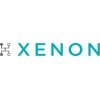
Cellular Aging and Neurobiology of Depression Study
Major Depressive DisorderWe are conducting an eight week longitudinal study to learn if blood levels of certain naturally occurring compounds and genetic markers differ between patients with depression and healthy adults who are not depressed, and if any such differences relate to memory performance, mood, and neurobiology. We are also interested in how the gut microbiome is affected by antidepressant treatment. We will do this by comparing the unmedicated depressed patients with matched healthy controls at baseline and then following the depressed patients over the course of eight weeks of standardized antidepressant treatment to gauge which baseline abnormalities normalize over the course of treatment.

Study to Evaluate TNX-601 ER Monotherapy Versus Placebo in Patients With Major Depressive Disorder...
DepressionDepressive Disorder5 moreThis is a Phase 2, randomized, double-blind, placebo-controlled, parallel-group study to evaluate the efficacy, safety, and tolerability of TNX-601 ER monotherapy versus placebo in patients with Major Depressive Disorder (MDD).

RCT of Brain Longitudinal Biomarker Study (OPT-Neuro RCT)
DepressionDementia6 moreThe purpose of this study is to assess which antidepressants work the best in older adults who have treatment-resistant depression (TRD), and to test whether treatment-resistant late life depression is associated with declines in memory and attention and brain structure and function.

Treatment for Major Depressive Disorder With Intermittent Theta-burst Stimulation
Depressive DisorderTreatment-ResistantThe main purpose of this study is to investigate the two different intermittent Theta Burst (iTBS) repetitive transcranial magnetic stimulation (rTMS), its effectiveness in alleviating depressive symptoms. All patients are randomized to two different iTBS groups.

Measurement-Based Care Vs. Standard Care for Major Depressive Disorder
Major Depressive DisorderMajor depressive disorder (MDD) is one of the leading causes of disability worldwide, indicated as one of the two most disabling mental disorders by the Global Burden of Diseases, Injuries, and Risk Factors Study (GBD) 2019 (Vos et al., 2020). Despite several effective pharmacological and psychosocial interventions available globally, only about one-third of depressed patients achieve remission (Xiao et al., 2021). There is a need to establish scalable clinical management practices which utilize biopsychosocial assessments, formulate a differential diagnosis, and provide evidence-based treatments for patients with MDD (Hong et al., 2021). While significant evidence for effectiveness of Measurement Based Care (MBC) is found in clinical settings from high and middle-income countries, assessments of MBC compared with usual care for the treatment of MDD are yet to be completed in low-resource settings like LMICs. The aim of this trial is to determine the efficacy and safety of MBC in patients with MDD in comparison with standard care in Pakistan. In order to reduce the variance found in treatment-as-usual and isolate the impact of MBC, standard care for this trial will limit medication choices to either paroxetine or mirtazapine.

rTMS for Military TBI-related Depression
Depressive SymptomsMild Traumatic Brain Injury2 moreThis study aims to compare different types of repetitive transcranial magnetic stimulation (rTMS) that may alleviate depressive symptoms in United States Military Service Members with a history of concussion.

A Study to Evaluate the Safety, Tolerability and Efficacy of XEN1101 in Major Depressive Disorder...
Major Depressive DisorderThis is a multicenter, Phase 2, double-blind, randomized, parallel-arm, placebo-controlled clinical trial to evaluate the efficacy, safety, and tolerability of XEN1101 in subjects with Major Depressive Disorder.

Clinical Study for the Evaluation of the Effectiveness of Use of a Poly-L Lactic Acid Injectable...
Buttocks Volume LossThe purpose of this study is to assess the effectiveness and safety of Gana X, a Poly L-lactic acid filler for the aesthetic treatment of buttocks.

Ketamine for the Rapid Treatment of Major Depressive Disorder and Alcohol Use Disorder
Major Depressive DisorderAlcohol Use DisorderThe investigators will compare 3 treatment groups (ketamine plus naltrexone vs. ketamine alone vs. placebo) for treating major depressive disorder (MDD) and alcohol use disorder (AUD) in an 8-week randomized, double-blind, placebo-controlled, between-subjects trial. First, prior to the double-blind trial, the investigators will conduct an open-label trial that will include 5 patients with comorbid MDD and AUD to test safety and efficacy of repeated ketamine treatment (0.5 mg/kg; once a week for 4 weeks; a total of 4 ketamine infusions) with a follow-up of 4 weeks. Second, after reviewing the safety and efficacy of repeated ketamine treatment from the open-label trial, the investigators will conduct an 8-week, randomized, double-blind, placebo-controlled trial that will include 60 patients with comorbid MDD and AUD to test safety and efficacy of repeated ketamine treatment (0.5 mg/kg; once a week for 4 weeks; a total of 4 ketamine infusions) plus naltrexone with a follow-up of 4 weeks. The 4-month follow-up session will also occur.

Conventional Bilateral rTMS vs. Bilateral Theta Burst Stimulation for Late-Life Depression
Major DepressionThis trial will compare conventional sequential bilateral rTMS to a bilateral theta burst stimulation protocol. The right and left dorsolateral prefrontal cortices will be the site of stimulation in both treatment conditions. The site of stimulation will be targeted using MRI co-registration. The study seeks to determine if the bilateral theta burst protocol has similar effectiveness to the conventional bilateral rTMS protocol in treating major depression.
